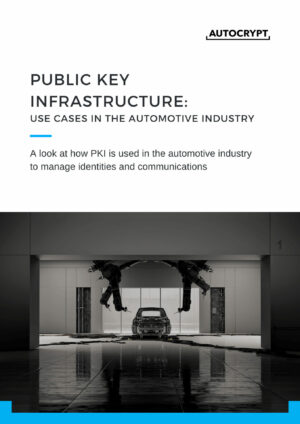White Paper: Public Key Infrastructure, Use Cases in the Automotive Industry
With an increasingly digitalized economy, many industries are facing a growing need to manage digital identities, raising the demand for public key infrastructure (PKI).
The automotive industry is one of them. To establish trusted communication channels, digital identities must be assigned to every connected vehicle endpoint, every connected electronic component inside the vehicle, and every connected endpoint of roadside infrastructure. This makes PKI essential to the industry.
Unlike conventional methods of user authentication and identity management, PKI enables end-to-end encrypted communication using certificates issued by a network of trusted certification authorities, thereby allowing for decentralized identity verification between different users and service providers.
For instance, during automated electric vehicle charging, the vehicle and the charger use PKI to verify one another’s identity and share end-to-end encrypted information like battery status, charging status, and payment and billing information.
This white paper explains what PKI is and explores its use cases in the automotive industry, mainly covering the following topics:
- What is PKI and how is it different from other authentication methods?
- Why is PKI important to the automotive industry?
- Use cases of PKI in the industry, ranging from vehicle production and V2X communication to EV charging
- Introduction of AutoCrypt PKI, a comprehensive automotive PKI solution


